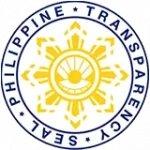Cash For Work
The Cash for Work program implemented by the Ministry of Social Services and Development (MSSD) is designed to support overall disaster risk reduction efforts and community participation in vulnerable areas. The program aims to provide a temporary source of subsistence for disadvantaged individuals and families while involving them in communal projects related to disaster preparedness, rehabilitation, risk reduction, climate change adaptation, and mitigation.
The program adheres to several general policies set by MSSD. These policies ensure that resources, including human, material, and financial, are allocated to support the vulnerability and risk reduction of disadvantaged communities in a timely and appropriate manner. MSSD also emphasizes building local capacities, reducing risks, mitigating hazards, and contributing to climate change adaptation through community-based activities. The provision of support is based on assessments, identified priorities of local communities, DRR and climate change adaptation plans, and efforts of local government units and stakeholders.
The objectives of the Cash for Work program are threefold. Firstly, it aims to encourage community participation in the implementation of DRR and climate change adaptation projects, which benefit the communities and reduce vulnerabilities among disadvantaged individuals. Secondly, it aims to generate a temporary source of subsistence that supports families in accessing basic needs and services. Lastly, it contributes to overall DRR and climate change adaptation efforts, minimizing risks, mitigating impacts, and increasing the coping capacities of communities during crises.
The program encompasses various types of project activities that can be supported. These include livelihood and productivity support, hunger mitigation, and food security projects such as communal farming, repair or construction of post-harvest facilities, and related activities. It also covers the construction, repair, and rehabilitation of community facilities and social service centers, including shelters, health stations, daycare centers, schools, roads, water and sanitation facilities, and other infrastructure projects. Additionally, the program includes projects related to environmental conservation, disaster preparedness and response, and community services.
Eligible beneficiaries and participants of the Cash for Work program are community members belonging to disadvantaged and poor populations in the project area. Participants should be at least 18 years old and capable of undertaking or participating in the project, with special consideration given to women, persons with disabilities, senior citizens, and other disadvantaged individuals. Beneficiaries may include associations, interest groups, people’s organizations, former combatants, surrenderees, and other community associations.
The financial subsidy provided to each Cash for Work beneficiary or participant is Php 275 per day or at least 75% of the daily wage prevailing in the Bangsamoro Autonomous Region in Muslim Mindanao (BARMM), whichever is higher. Each beneficiary or participant can work a maximum of 20 days per project. While it is encouraged to allow one participant per household, exceptional cases may allow a maximum of two members per household to participate.
To implement the Cash for Work program, a project or activity proposal needs to be prepared and submitted to the provincial operating office or unit for review and assessment. The proposal should include project details, objectives, implementation plan, program of works, and budgetary requirements. After review and assessment, appropriate funding is allocated, and the project can proceed with implementation. The proponents are responsible for maintaining attendance records, monitoring project accomplishments, and providing necessary documentation for MSSD monitoring and review.
The financial subsidy is disbursed by the MSSD provincial office staff, acting as special disbursing officers. They prepare a daily cash assistance payroll based on the attendance logbook, ensuring timely payment to the Cash for Work beneficiaries. After the completion of the project/activity, the provincial office prepares a completion report that highlights both cash disbursement and the work accomplished. This report is submitted to the MSSD-BARMM Regional Office for review and appropriate action.
Monitoring and evaluation of the Cash for Work projects occur at three levels:
- Municipal-level monitoring ensures that work conducted and beneficiary selection align with the approved project proposal and guidelines.
- Provincial-level monitoring takes place on a monthly basis or as necessary, providing technical assistance and feedback to the municipal level.
- Regional office monitoring occurs at least once during the project’s life or as needed to provide technical assistance and recommendations for program improvement. Evaluation reports are prepared by the provincial office, focusing on the effectiveness, efficiency, and impact of the Cash for Work program, including its influence on individuals, families, and communities, the use of cash assistance, and the acceptance and benefits derived from the project.


